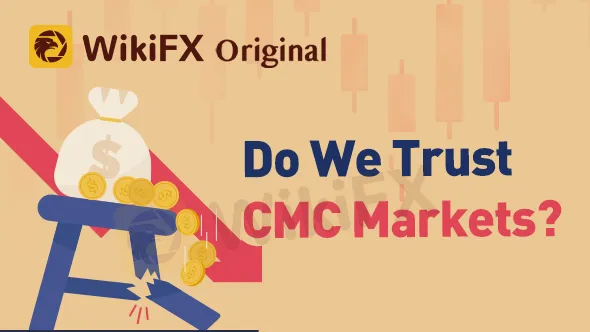Abstract:In today's article, WikiFX will explore CMC Markets in depth, examining its features, fees, safety measures, deposit and withdrawal options, trading platform, and customer service to help you make an informed decision on whether or not to use this platform.

In 1989, CMC Markets was founded in London, United Kingdom. In 1996, CMC Markets launched the world's first online retail foreign exchange trading platform. In 2016, CMC Markets was listed on the London Stock Exchange (LSE). Today, CMC Markets has offices in 13 countries around the world, processing over 4 million trades per month and over 800,000 transactions per day.

CMC Markets offers a wide range of trading instruments, including 330 currency pairs, over 110 precious metals and commodities, 90 indices, 10 cryptocurrencies, 9,400 stocks and 50 debt instruments.
CMC Markets features an award-winning, self-designed “next generation” online trading platform and mobile application. It is a professional charting feature, powerful trading tools and innovative platform navigation.
Trading Platforms:
CMC Markets offers 2 different trading platforms:
MT4 trading platform: Clients can download the MT4 application to their desktops or mobile iPhones, iPads and Android phones for easy mobile trading. At the same time, clients can also use MT4 automated programs known as Expert Advisors (EAs) to make trading even more effortless and efficient.
The “next generation” proprietary CFD trading platform: Combined with CMC's award-winning charting tools, this technical analysis suite, developed in-house by CMC Markets, is a one-stop analytical tool for users.

Deposits and Withdrawals:
Unlike its peers, CMC Markets only offers a limited number of deposit options. It does not accept any cheque, cash or card deposits other than international wire transfers.
CMC Markets will not charge any handling fees. CMC Markets will not charge any handling fees, however, any fees charged by the remittance and receiving bank will be borne by the client.
In order to protect the security of the user's funds, CMC Markets may require additional information and/or proof of identity from the client before processing the funds transfer request.
WikiFXs Verdict:

WikiFX is a global forex broker regulatory query platform that houses verified information of over 41,000 forex brokers. We research, review and rate forex brokers from various aspects to prove their credibility.
From here, it is stated that CMC Markets has a WikiScore of 7.78 out of 10. However, there are a few licenses which CMC Markets claims to hold have been revoked and expired.

Even losing a few licenses, CMC Markets is still a broker that is operating under the regulations of top-tiered financial watchdogs, including FCA and FMA. Therefore, WikiFX still deems CMC Markets a trustworthy broker.














